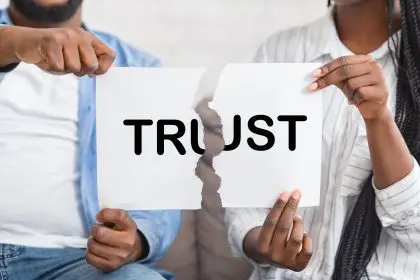Breaking up might be hard to do, as the famous song suggests, but the way you approach this delicate conversation can make all the difference in how both parties emerge from the experience. While there’s never a perfect time to end a relationship, relationship expert Dr. Sarah Mitchell emphasizes that choosing the right words and setting can help preserve dignity and minimize emotional damage for everyone involved.
Why timing and location matter more than you think
The environment you choose for this conversation carries as much weight as the words themselves. “Having this discussion in a private, neutral space allows both parties to express their emotions freely without the added pressure of public scrutiny,” Mitchell explains. A quiet park during off-peak hours or a private home setting typically works best, avoiding restaurants or crowded places where emotions might need to be suppressed.
Beginning with acknowledgment and appreciation
Starting the conversation by recognizing the value of your shared experiences sets a tone of respect and gratitude. This approach helps create an atmosphere of mutual understanding rather than hostility. Consider opening with genuine appreciation for the time you’ve spent together, acknowledging the growth and memories you’ve shared, before moving into the harder aspects of the conversation.
The power of emotional honesty in difficult moments
Being transparent about your emotional journey leading to this decision helps your partner understand that this isn’t an impulsive choice but rather a thoughtful conclusion. This kind of honesty, while potentially painful in the moment, can prevent lingering questions and “what-ifs” that often plague post-breakup healing.
Moving beyond blame to mutual growth
A crucial element in any breakup conversation is avoiding the blame game. Instead of pointing fingers or listing grievances, focus on growth and incompatibility. This approach helps preserve both parties’ self-esteem and allows for a more mature dialogue about the relationship’s end.
Navigating the conversation with empathy and clarity
The way you structure your words can significantly impact how your message is received. Using “I” statements helps express your feelings without making accusations. For example, saying “I feel we’ve grown in different directions” rather than “You’ve changed” creates space for honest discussion without defensiveness.
The importance of setting clear boundaries
As the conversation progresses, it’s essential to be clear about expectations moving forward. Whether you hope to maintain a friendship or need complete space, communicating these boundaries helps prevent confusion and false hopes that could complicate the healing process.
Creating space for mutual understanding
Allow your partner time to process and respond to what you’re saying. This isn’t a monologue but rather a dialogue about ending your romantic relationship. Being patient and present for their reaction, even if it’s not what you hoped for, shows respect for their feelings and the relationship you shared.
Looking toward the future with compassion
While discussing the end of your relationship, it’s helpful to acknowledge that both parties deserve happiness and fulfillment, even if that means finding it separately. This forward-looking perspective can help ease the transition from partners to whatever comes next.
The aftermath: Setting expectations and boundaries
After the initial conversation, having clear guidelines about communication and social media can help both parties navigate the post-breakup period more smoothly. This might include discussing how to handle mutual friends, social events, and online interactions.
Understanding the ripple effect on your social circle
The impact of a breakup extends beyond just the couple involved. Shared friends, family members who’ve grown attached, and even professional connections might feel the effects of your separation. Being mindful of how you announce and handle these extended relationships can help minimize drama and preserve important connections for both parties.
Close friends and family members often feel caught in the middle when couples separate. Consider having a thoughtful discussion with your partner about how to inform your shared circle. This might include agreeing on a simple, drama-free message that doesn’t force others to take sides or feel uncomfortable maintaining relationships with both of you.
Managing digital disconnection in modern breakups
Today’s relationships leave digital footprints that require careful consideration during a breakup. Social media announcements, shared passwords, and joint digital accounts need to be handled with care. This might mean quietly changing relationship statuses rather than making dramatic announcements, or gradually untangling shared digital lives rather than abruptly cutting all connections.
Consider making a list of shared accounts and passwords that need to be separated, from streaming services to shared photo albums. This practical approach helps ensure no loose ends remain that might force uncomfortable interactions later.
Creating healthy space for healing
While the concept of remaining friends might seem appealing, relationship experts suggest taking a period of complete separation before attempting any kind of friendship. This break allows both parties to process their emotions and rediscover their individual identities without the complexity of maintaining regular contact.
During this healing period, resist the urge to check up on your ex through social media or mutual friends. This digital distance can be as important as physical space in moving forward and processing the end of the relationship.
Handling shared responsibilities and possessions
For couples who’ve built a life together, practical matters need addressing alongside emotional ones. Creating a clear plan for dividing shared possessions, handling joint financial responsibilities, and managing any shared commitments helps prevent future conflicts and provides closure.
Consider making a detailed list of shared items and calmly discussing how to divide them fairly. For particularly meaningful or contested items, consider using a neutral third party to help mediate the division process.
Moving forward with grace and dignity
The way you handle yourself in the weeks and months following the breakup can significantly impact your healing process and future relationships. Resist the urge to speak negatively about your ex to mutual friends or on social media. This restraint not only shows maturity but also helps preserve your dignity and reputation.
Focus instead on personal growth and healing. This might include pursuing interests you may have neglected during the relationship, strengthening other relationships in your life, or working with a therapist to process your emotions and learn from the experience.
Recognizing the signs of healthy closure
True closure doesn’t necessarily mean remaining friends or even feeling positive about your ex. Instead, it means reaching a place where thoughts of the relationship no longer trigger strong emotional responses. This process takes time and looks different for everyone.
Signs of healthy closure might include being able to talk about the relationship without emotional pain, feeling genuine well-wishes for your ex’s happiness, and being open to new romantic connections without comparing them to your past relationship.
Building resilience for future relationships
Every relationship, even those that end, offers valuable lessons for the future. Take time to reflect on what you learned about yourself, your needs, and your relationship patterns. This self-awareness can help you build stronger, healthier relationships in the future.
Consider keeping a journal during this time to track your emotional progress and insights. This private reflection can help you process your feelings while maintaining appropriate boundaries with others.
Embracing new beginnings
While the end of a relationship marks a significant change, it also opens doors to new possibilities. This might mean pursuing long-held dreams, traveling to new places, or simply rediscovering who you are as an individual rather than as part of a couple.
Remember that taking time to fully heal before pursuing new romantic relationships shows respect for both yourself and potential future partners. There’s no universal timeline for when you should start dating again; trust your instincts and don’t let others pressure you into moving faster than feels comfortable.
















